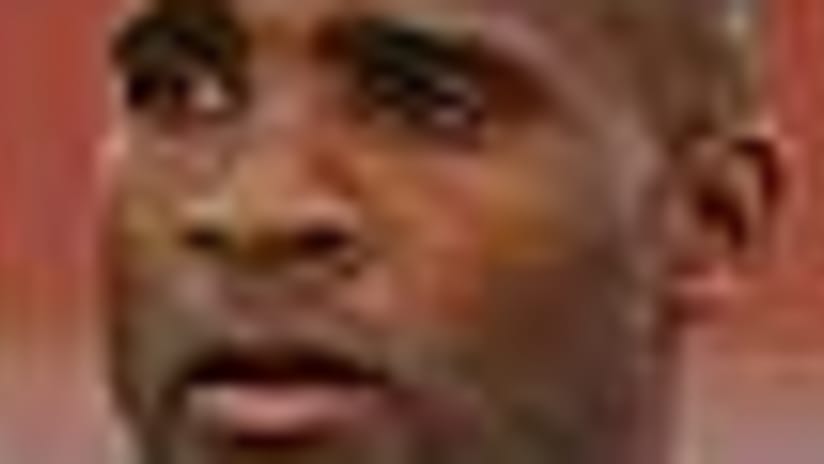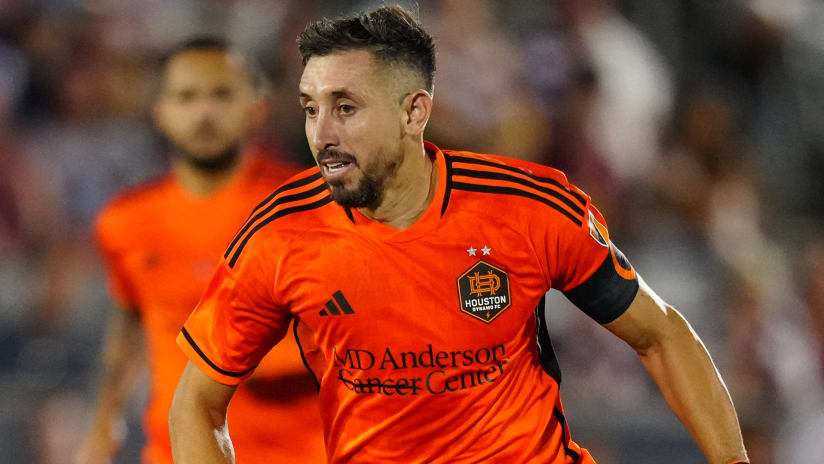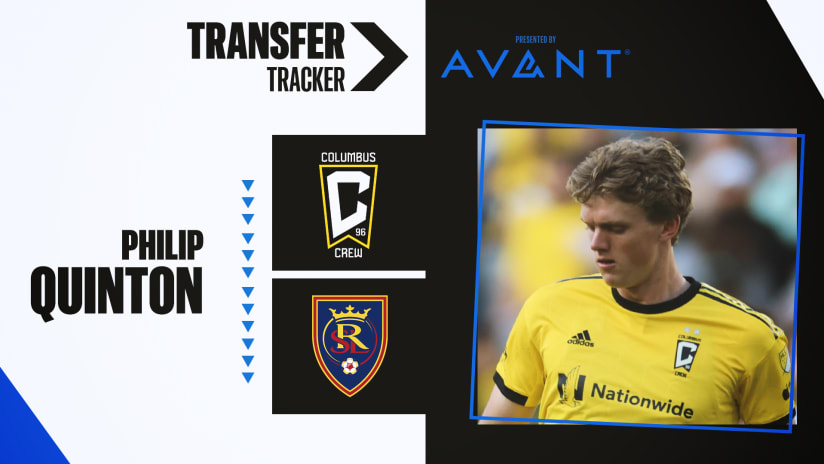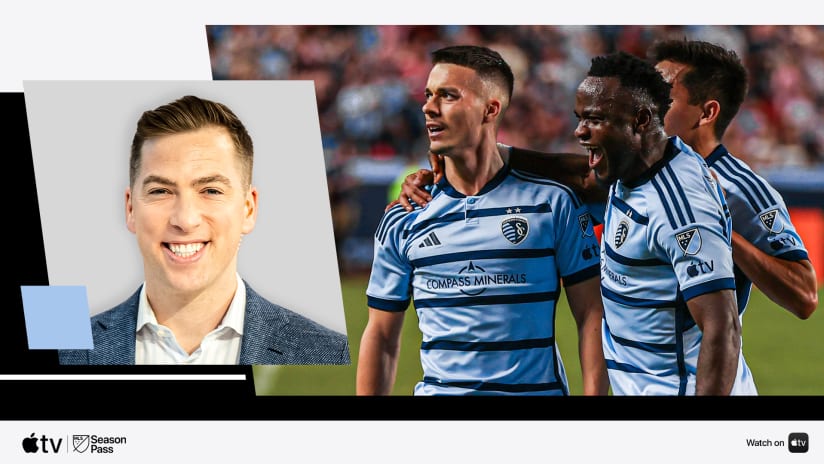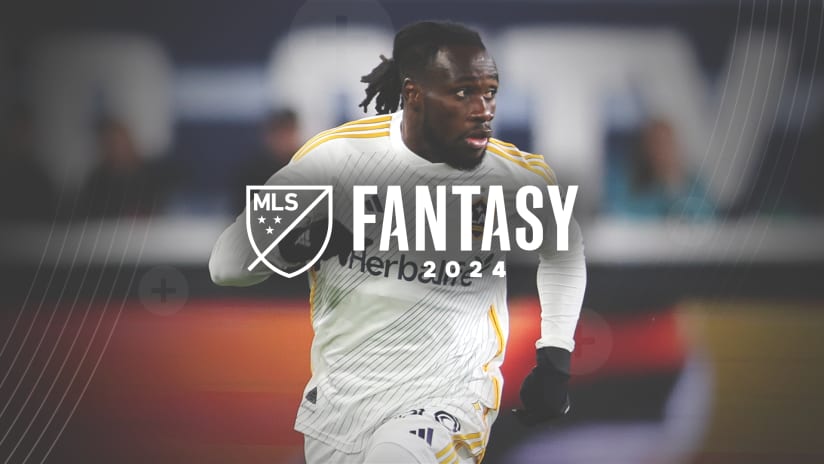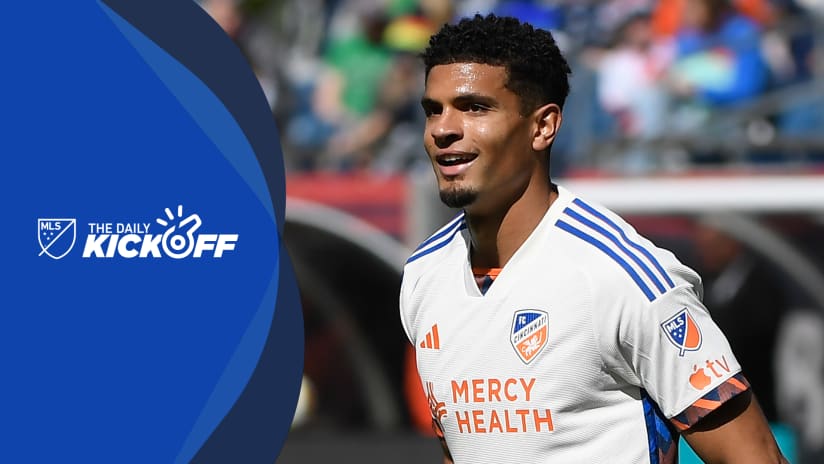and still counting.
After his playing days on the club level, Hamlett was able to latch on with collegiate team UNC-Wilmington for one year. The following season he transferred to George Mason University in Virginia where he played his last three seasons and started every match in his junior and senior years at sweeper. It was at this time in his career that Hamlett caught the break that would allow him to continue his life in soccer at the next level.
"At George Mason I was fortunate enough to play for Gordon Bradley, who at that time was familiar with Fort Lauderdale Strikers (APSL) coach Thomas Rongen," recalls Hamlett.
Hamlett was able to make the Strikers first team while also splitting his time playing indoor soccer throughout the winter with the Harrisburg Heat (NPSL), where he was honored with a selection on the NPSL All-Rookie Team. After a two-year stint in Anaheim with the CISL's Splash, he went on to participate in the first ever Major League Soccer Combine. Hamlett found his way into the league in its inaugural season after being drafted by the Colorado Rapids in 1996, a season in which he ended up winning the team's Bic Tough Defender award. Things were looking up for the newly-nicknamed "Hammer."
Before the stroke, of course.
Leading up to the 1997 season, Hamlett suffered from a blood protein deficiency that led to an immense stroke during play, cutting short his days on the field as a player. For Hamlett, the choice to end his career was simple, though unexpectedly so.
"I think after three months of running tests and dealing with doctors, it became a no-brainer to retire," said Hamlett. "I think soccer is a great game, but there was too much to live for me to risk it all. I decided to hang them up, but it was really because of the stroke that I had to stop playing. I wanted to be around soccer still, I wanted to stay involved."
Coincidentally, at the same time MLS was moving forward with expansion into Miami and Chicago to make a 12-team league for the 1998 season, and Hamlett wanted to be a part of it. Soon enough, a phone call came.
"When my agent called me and told me about Chicago wanting to interview me for a position, I said, 'Chicago? It's cold there!' But it's eight years later now, and I'm still here."
The man in charge of forming the original staff for the future Chicago team was the Fire's current general manager, Peter Wilt. Prior to his position with the Chicago Fire, Wilt managed the NPSL's Chicago Power indoor franchise and was familiar with the powerful defender.
"Peter had seen me play from my days in indoor soccer and he knew that I was looking for a position in the league," Hamlett said. "I have to admit, I actually wanted to go to Miami because I lived in Ft. Lauderdale at the time. When the Fusion were starting up I thought that they might be a good mix for me. I was an ex-player who had played for the Strikers and spoke Spanish, so it seemed to make sense."
Despite his connections to the Florida area, and with some convincing by Wilt, Hamlett was persuaded that Chicago would be a suitable location for him to give back to the game.
In his first role with the Fire, Hamlett was involved in everything from community relations to team scouting, doing anything he could to develop within the club. His philosophy is that players today in the United States cannot be simply soccer players -- they must also be promoters of the game. Once their time as players are finished, a new chapter of giving back to the sport begins.
"The players today have to be able to go out within the community, not just be full-time players," explained Hamlett. "Their responsibility is also to go back and give a little. That's how it started for me. The coaching part wasn't clear at that point back in 1998, and so it took some time."
Hamlett's transition from ex-player and scout to full-time coach was made easier by working under former Fire head coach Bob Bradley. Under Bradley, Hamlett was not only able to observe and pick up pointers on how to coach professionally, but he also spent his spare time acquiring his USSF "B" coaching license. Eventually, with one full season under his belt, Hamlett felt he was ready to work primarily as a coach.
"After that first season I thought that if I wanted to be a coach, I would have to do it the right way, so I got my 'A' license before the 1999 season and became a full assistant. At that point, I knew the decisions I had made were going in the right direction."
Current Fire head coach Dave Sarachan believes that, while Hamlett bleeds Fire red, the day could soon come where the two will be facing each other on opposite benches.
"When I took the job and met with the coaches, [Denis] loved Chicago, loved being a part of the Fire organization and he knew he wanted to continue on in his capacity as the top assistant. It's never easy when a new guy comes in, but the passion and love he has for the Fire is evident," said Sarachan. "He complements me well in terms of picking up little areas where I miss, and that's what the good assistant coaches do. When he gets the opportunity, he'll make a very good head coach."
In the meantime, Sarachan has entrusted Hamlett to take the helm of the Fire Reserves, who are taking part in the new MLS Reserve Division in 2005. Hamlett believes that the Reserve Division is MLS's biggest step towards helping increase the level of play in MLS in the future.
"I think it is important now that we finally have a reserve league where our players can get some minutes. It's important that those 12 guys who do not play on Saturday can get more games in," said Hamlett. "The philosophy is still the same as the first team. There shouldn't be a drop-off in terms of our coaching tactics. I need them to show me in these opportunities that they have worked the kinks out of their game and should play every weekend."
What might a rugged ex-pro defender-turned coach prefer in terms of style of coaching?
"For me, it's just about playing the right way and keeping it simple," said Hamlett. "Soccer is a simple game and, at times, we as players try to complicate things. It hasn't changed since I was a kid -- just go out and keep it simple. Keep the ball moving and when the chance comes to go one-on-one and do your thing, then it's time to prove that you are comfortable in your role. Aside from a few pointers I give at halftime and practice, when the guys step on the field to play, it's their game."
And after a well-traveled 30 years in the sport, full of ups and downs, uncertainties and triumphs, soccer is still Hamlett's game, too.

